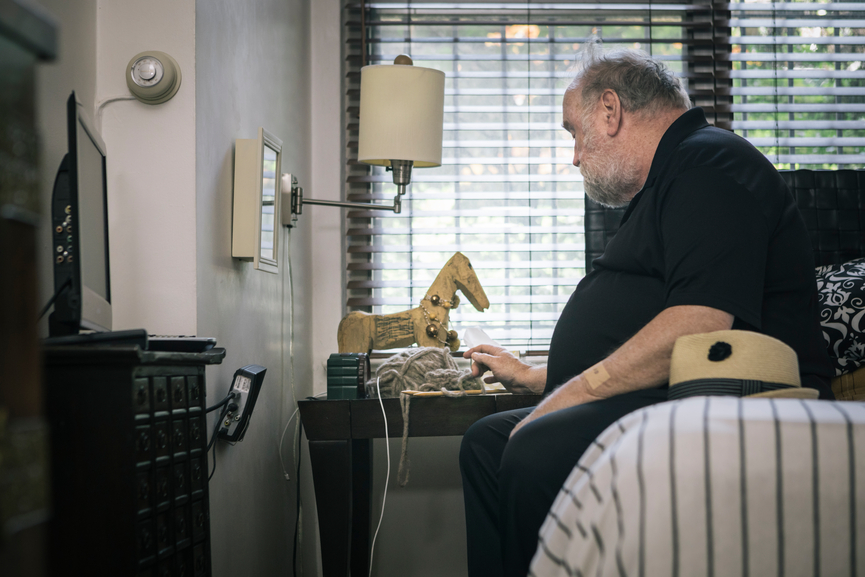Grief is a natural response to a painful, significant loss of a loved one. However, there is no template for proper or healthy grieving. While most human beings will go through the grieving process at some time in their lives, it’s essential to understand that every person’s experience will be unique.
What is Grief?
The American Psychological Association defines grief as “the anguish experienced after significant loss, usually the death of a beloved person.” While most people associate grieving with death, it can also apply to the deep sadness one feels with other significant losses in life, including divorce, retirement, or moving away from friends and family members.
Bereavement, though, is specifically defined as “the condition of having lost a loved one to death,” and may include emotional pain and distress. The term “mourning” is often used in place of “bereavement.”

How Common is Grief?
It’s difficult to pinpoint how many people have or will experience grief accurately. Some grievers will never admit or outwardly show their feelings of sadness or deep despair after a significant loss. Additionally, because everyone will experience the grieving process in different ways, it can be challenging to identify what they are feeling as grief or bereavement. Plus, there’s no set timetable for these feelings or behaviors so that they may occur long after the “typical” period of mourning has passed.
However, in a 2019 WebMD survey, 72% of respondents reported grieving over a life event within the previous three years. Thirty-two percent of these loss events were the death of a family member or close friend (excluding a child or spouse), 29% were the loss of a friendship or relationship (excluding divorce), 23% were diagnosis of a serious illness in a family member, 20% were the death of a pet.
Common Symptoms of Grief
Again, there is no typical or normal reaction to loss, and the symptoms of grief will vary greatly from person to person based on the circumstances. Some of the more common emotions and behaviors a grieving person may experience include:
- Sadness or intense sorrow
- Disbelief, or problems accepting the loss
- Feelings of guilt or self-blame
- Anger or bitterness
- Loss of interest in favorite activities
- Changes in appetite or sleep patterns
- Loneliness or withdrawal from others
- Anxiety or depression
Therapists often refer to these symptoms as the stages of grief. In 1969, psychiatrist Elisabeth Kubler Ross identified five stages of grief in her groundbreaking book On Death and Dying. Today, these stages — denial, anger, bargaining, depression, and acceptance — are still trusted as phases of the grieving process. However, grief professionals are quick to clarify that not everyone will go through every stage and that there is no particular order for each stage. There has also been discussion of additional stages of grief.
Types of Grief
Normal grief: Although grief is complex and highly individualized, from the degree of sadness each griever feels to how much time it takes for them to find some sense of solace, most grief is referred to as simple or normal grief. For most bereaved people, their symptoms of grief will begin to diminish in severity or occur less frequently as time passes.
Anticipatory grief: While most grief is experienced after a loss occurs, anticipatory grief is a type of mourning that occurs when a person is expecting his or her own death or that of a family member. Unlike a sudden, unanticipated loss, such as a miscarriage or a heart attack, anticipating a loss allows the patient or family member more time to adjust to the reality of their loss slowly. Often, the process of tending to unfinished business or even making funeral arrangements before death helps to prepare the patient or loved ones for the coming loss.
Complicated grief: When the grieving process continues for an extended length of time, or the symptoms of grief don’t lessen, the bereaved person may be suffering from complicated grief. Symptoms of complicated grief will be intense versions of “normal” grief and may lead to more severe issues like major depression, suicidal thoughts, substance abuse, or post-traumatic stress disorder (PTSD).
Do I have Normal or Complicated Grief?
Even though loss happens to virtually everyone, there’s nothing normal about becoming a widow or widower, losing a parent or grandparent, or the death of a child. You will deal with grief in your own way at your own pace. However, if you feel that your symptoms are not lessening over time or actually intensify, or if your symptoms begin to interfere with your personal or professional life, it might be time to consider grief counseling.
Treatment for Grief
There are several ways you can begin to deal with the physical and emotional symptoms of grief, loss, and bereavement. Exercising and staying active may help to reduce symptoms of depression or anxiety as well as alleviate physical ailments like sleeplessness or appetite problems. Writing your thoughts and feelings in a journal may help you to recognize and identify the phases of your grieving process. Journaling also allows you to release your anger, frustration, guilt, or other emotions freely and without judgment.
Support groups are also a great way to help yourself through this difficult time. Specialized groups, such as those for widows or widowers, parents who have lost a child, or those that focus on other types of loss, will help you to understand that you’re not alone in your struggles and that others are experiencing similar types of grief.
You may also find relief and healing with the professional help of a counselor, therapist, or psychologist. Through counseling and treatment like cognitive behavioral therapy (CBT), your mental health professional will help you to work through your grief in a healthy way so you can move successfully through the next phases of your life.

Find a Therapist to Help With Loss, Grief, and Bereavement
Get personalized matchesCommon Barriers to Grief Treatment
Most people don’t get back to “normal” when their bereavement leave expires. Grief can linger for months or even years, and experiencing the grieving process doesn’t mean you lack resiliency or aren’t a strong person. Some people will hesitate to seek help for grief, falsely believing:
- There’s a stigma associated with mental health counseling, or
- The only way to get through grief is to endure it and put on a brave front for as long as it takes, or
- They deserve to suffer because of something they’ve done.
None of these misconceptions should hold you back from finding a great therapist with whom you can find solutions to your continuing or complicated grief.
Find a Therapist for Grief Counseling
Your first step to recovery is to schedule an initial appointment with a therapist, counselor, psychologist, or other qualified mental health professional easily using WithTherapy’s innovative and user-friendly tool.
Typical online therapist listings are overwhelming, seemingly endless, and severely lacking in the details you want when looking for a mental health professional. With Therapy is a matchmaker service that uses science to pair you with a personalized shortlist of therapists.
You’ll start by finding therapists who are available when and where you are. Then you’ll be able to narrow down your list with preferences like what you think would be helpful for your treatment—for example, someone who specializes or has experience in grief counseling. WithTherapy will also take into consideration demographic considerations like race, gender, or sexual orientation of your preferred therapist.
Best of all, once you’ve found your ideal therapist, you can request an appointment immediately, directly through the WithTherapy website. No additional URLs or phone calls are necessary. If you’re ready to address your grief symptoms, check out WithTherapy to start a healthy, productive relationship with a therapist.
Find a Therapist to Help With Loss, Grief, and Bereavement




